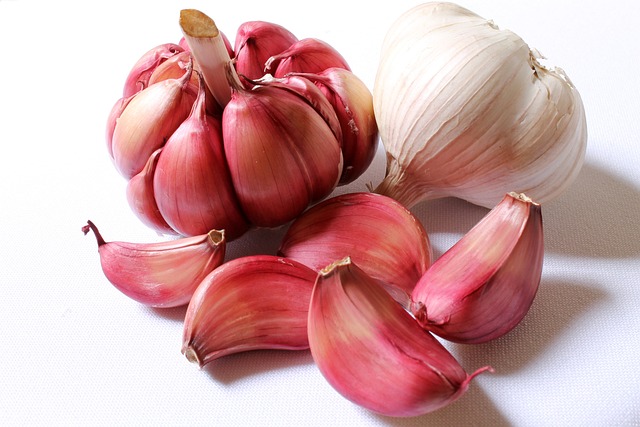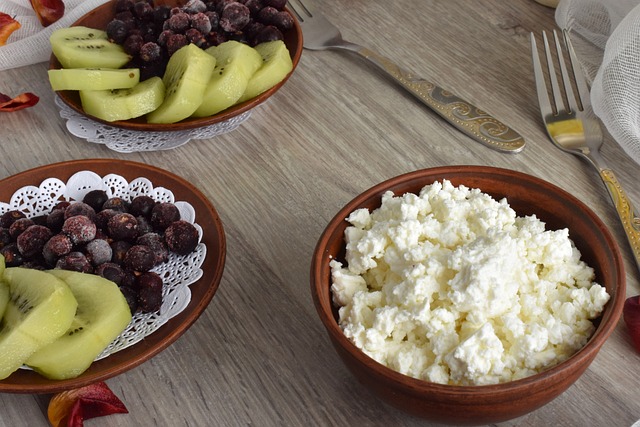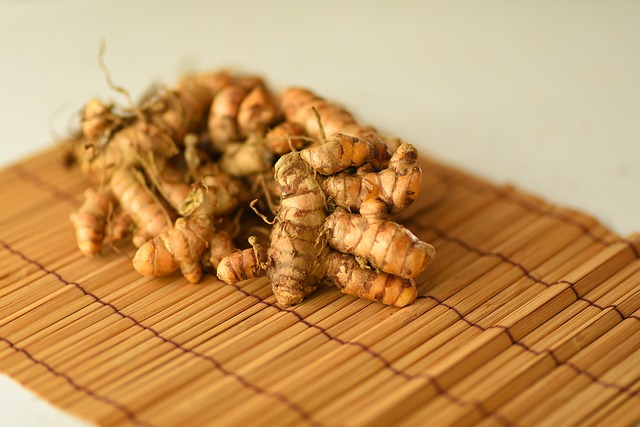Maintaining proper levels of this antioxidant is critical. Here are some of the natural ways to boost your level of glutathione.
Glutathione levels in the body can be reduced for a variety of causes, including poor diet, chronic disease, infection, and continual stress.
Not a lot of us know what glutathione is, but glutathione is one of the most significant and powerful antioxidants in the body. Antioxidants are chemicals that fight free radicals in the body to lessen oxidative stress, so your body can combat free radicals.
While the majority of antioxidants are found in foods, glutathione is created by your body. It is composed mostly of glutamine, glycine, and cysteine, which are 3 amino-acids.
Glutathione levels are also known to decline with age.
Eat Sulfur-Rich Foods can Affect Level of Glutathione
Sulfur is an essential mineral found in a variety of plant and protein foods.
It is necessary for the construction and function of vital proteins and enzymes in the body. Notably, sulfur is essential for glutathione production.
Sulfur can be found in two amino acids: methionine and cysteine. It is mostly produced from dietary proteins such as beef, seeds, fish, and fowl.
However, vegetarian sulfur sources include cruciferous vegetables such as broccoli, Brussels sprouts, cauliflower, kale, watercress, and mustard greens.
Several human and animal studies have discovered that consuming sulfur-rich foods may lessen oxidative stress by raising glutathione levels.

Allium vegetables such as garlic, shallots, and onions also increase glutathione levels, most likely due to sulfur-containing chemicals.
Sulfur is required for the production of glutathione. As a result, eating sulfur-rich foods like beef, fish, and chicken, as well as allium and cruciferous vegetables, is very important for your glutathione level.
Increase Your Vitamin C Consumption Increase Glutathione Level
Vitamin C is a water-soluble vitamin that can be found in a wide number of foods, mainly fruits, and vegetables.
Vitamin C-rich foods include strawberries, grapefruits, oranges, papayas, kiwis, and bell peppers.
This vitamin has a variety of purposes, including acting as an antioxidant to protect cells from oxidative damage. It also keeps the body’s supply of other antioxidants, such as glutathione, in check.
Researchers discovered that vitamin C could help boost glutathione levels by first targeting free radicals and so conserving glutathione.
They also discovered that vitamin C aids glutathione reprocessing by turning oxidized glutathione back into its active form.
In fact, taking vitamin C supplements raise glutathione levels in white blood cells in healthy persons.
Adults who consume 500-1,000 mg of vitamin C every day for 13 weeks saw an 18% rise in glutathione in white blood cells.
Another study found that ingesting 500 mg of vitamin C daily boosted glutathione levels in red blood cells by 47%.
More research is needed to discover whether eating foods high in vitamin C can boost glutathione levels.
Vitamin C is essential for maintaining glutathione levels. As a result, consuming vitamin C supplements may aid in increasing glutathione levels in your body.
Increase Your Consumption of Selenium-Rich Foods
Selenium is a necessary mineral as well as a glutathione cofactor, which means it is required for glutathione action.
Beef, poultry, fish, mushrooms, cottage cheese, brown rice, and Brazil nuts are some of the richest sources of selenium.
Boost your selenium intake to assist in maintaining or increasing your body’s glutathione supply.
Adults should try to consume 55 micrograms of selenium each day. This is based on the amount required to maximize glutathione peroxidase synthesis.
In one trial, 45 patients with chronic renal disease were given selenium supplements. For three months, they were all given 200 mcg of selenium daily.
Surprisingly, their glutathione peroxidase levels all increased dramatically.
Another study found that consuming selenium supplements boosted glutathione peroxidase levels in hemodialysis patients.
Again, the research mentioned above-used supplements rather than selenium-rich meals.
It is important to know that the maximum acceptable intake level (UL) is established at 400 mcg per day. Due to the possibility of toxicity, consider selenium supplementation and dosage with your healthcare provider.
A balanced diet rich in selenium-rich foods will ensure optimal selenium levels — and thus good glutathione levels — for most healthy persons.
Selenium is a cofactor in the synthesis of glutathione. Fish, any meat, and Brazil nuts are all high in selenium and may help you naturally increase your glutathione levels.
Consume Foods High in Glutathione
Glutathione is produced by the human body, but it can also be obtained through diet. Some of the most nutritious foods are spinach, avocados, asparagus, and okra.
Dietary glutathione, on the other hand, is poorly absorbed by the human body. Furthermore, cooking and storage conditions might reduce the amount of glutathione in food.
Despite having a reduced influence on glutathione levels, glutathione-rich meals may aid in the reduction of oxidative stress.
A non-experimental study, for example, found that persons who ate the most glutathione-rich meals had a decreased risk of acquiring oral cancer.
Finally, more research is needed to completely comprehend the impact of glutathione-rich diets on oxidative stress and glutathione levels.
Take Whey Protein Supplements
Certain amino acids are required for your body to produce glutathione.
Cysteine is a very significant amino acid that participates in glutathione production.
Cysteine-rich foods, such as whey protein, may boost your glutathione levels.
In reality, research substantially supports this idea, with many studies finding that whey protein may enhance glutathione levels and so lower oxidative stress.
Whey protein is high in cysteine, which aids in the formation of glutathione. As a result, whey protein may aid in increasing your glutathione levels.
Consider using Milk Thistle.
Milk thistle pills are another natural way to increase glutathione levels.
The milk thistle plant, Silybum marianum, is used to make this herbal supplement.
Milk thistle is made up of three active components, silibinin, silychristin, and silidianin. Also known as silymarin. Silymarin is abundant in milk thistle extract, and it has excellent antioxidant effects.
Furthermore, silymarin has been proven in both test-tube and rodent experiments to enhance glutathione levels and prevent depletion.
Researchers believe that silymarin can keep glutathione levels stable by minimizing cell damage.
Turmeric Extract May Boost Glutathione Level
Turmeric is a bright yellow-orange herb that is widely used in Indian cooking.
Since ancient times, the herb has been utilized medicinally in India. Turmeric’s therapeutic benefits are most likely due to its major component, curcumin.
When compared to the spice, the curcumin level of turmeric extract is substantially higher.
Numerous animal and test-tube experiments have demonstrated that turmeric and curcumin extract can enhance glutathione levels.
Researchers conclude that the curcumin present in turmeric may help to restore appropriate glutathione levels and boost glutathione enzyme activity.
To experience a boost in glutathione levels, you need to take turmeric extract, as consuming the equivalent levels of curcumin with turmeric spice would be incredibly difficult.
Curcumin, an important component of turmeric, may boost glutathione levels. Although turmeric can be used to flavor food, the more concentrated forms of curcumin that can be found in turmeric extract are required to raise your levels.
Get Enough Rest
A good night’s sleep is critical to overall wellness. Interestingly, chronic sleep deprivation can result in oxidative stress and even hormonal abnormalities.
Furthermore, studies have indicated that persistent sleep deprivation lowers glutathione levels.
A study that measured glutathione levels in 50 healthy people and 50 insomniacs discovered that glutathione peroxidase activity was considerably lower in the insomniacs.
Several animal studies have also indicated that sleep deprivation lowers glutathione levels.
As a result, ensuring that you get enough restorative sleep each night may help you maintain or increase your levels of this antioxidant.
Regular exercise will affect level of Glutathione
Physicians and healthcare practitioners have long advocated for regular physical activity. It is very obvious exercise is beneficial to both your physical and mental well-being.
A recent study indicates that exercise can also assist in maintaining or increasing antioxidant levels, particularly glutathione.
When compared to cardio or weight training alone, combining both cardio and circuit weight training boosts glutathione the most.
Athletes who overtrain without proper diet and rest may be at risk of reduced glutathione synthesis.
As a result, introduce physical activity into your daily routine gradually and sensibly.
Avoid Excessive Alcohol Consumption
It’s no surprise that chronic and excessive alcohol consumption has a number of negative health consequences.
Alcoholism is frequently linked to diseases such as liver cirrhosis, brain damage, and pancreatitis.

Lung damage is another negative impact of alcoholism that is less well understood. This is most likely due to a glutathione deficiency in the lungs.
Glutathione is required for the normal functioning of the lungs’ tiny airways. In fact, healthy lungs contain up to 1,000 times the amount of glutathione seen in other areas of the body.
Glutathione depletion in alcoholics’ lungs is most likely related to oxidative stress caused by continuous alcohol use.
According to research, persons who habitually consume excessive amounts of alcohol have an 80-90% drop in lung glutathione levels.
As a result, decreasing your alcohol use may assist you in maintaining appropriate glutathione levels.
To Conclude
Glutathione is an important antioxidant that is mostly produced by the body but can also be obtained from dietary sources.
Unfortunately, numerous factors can deplete your levels of this antioxidant, including aging, a bad diet, and a sedentary lifestyle.
Fortunately, you may maintain enough glutathione level by increasing your physical activity, avoiding excessive alcohol use, eating a well-balanced diet, and keeping your body in motion.
Taking supplements of milk thistle, turmeric, or whey protein supplements can also be ideal.


